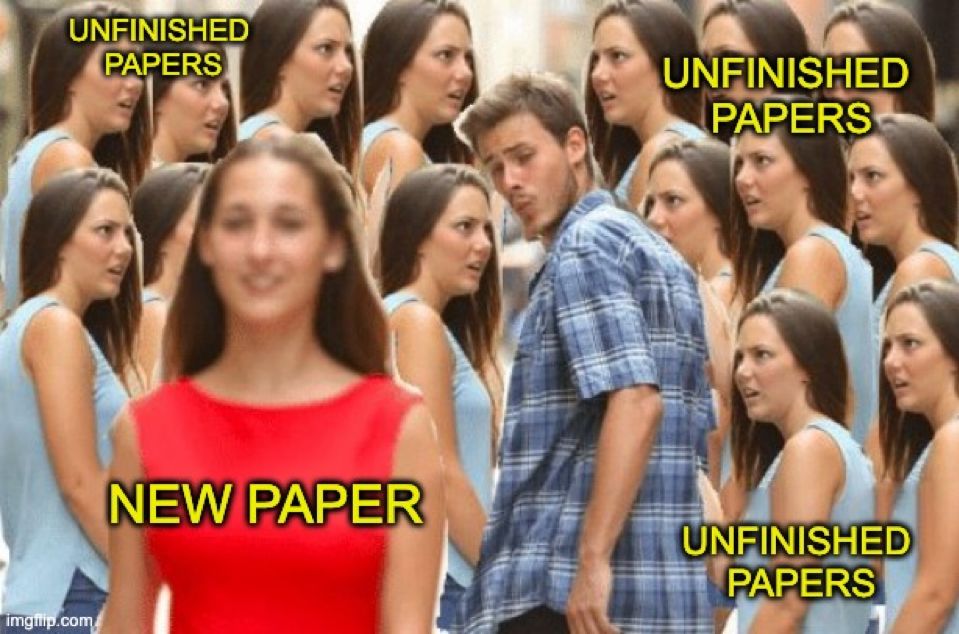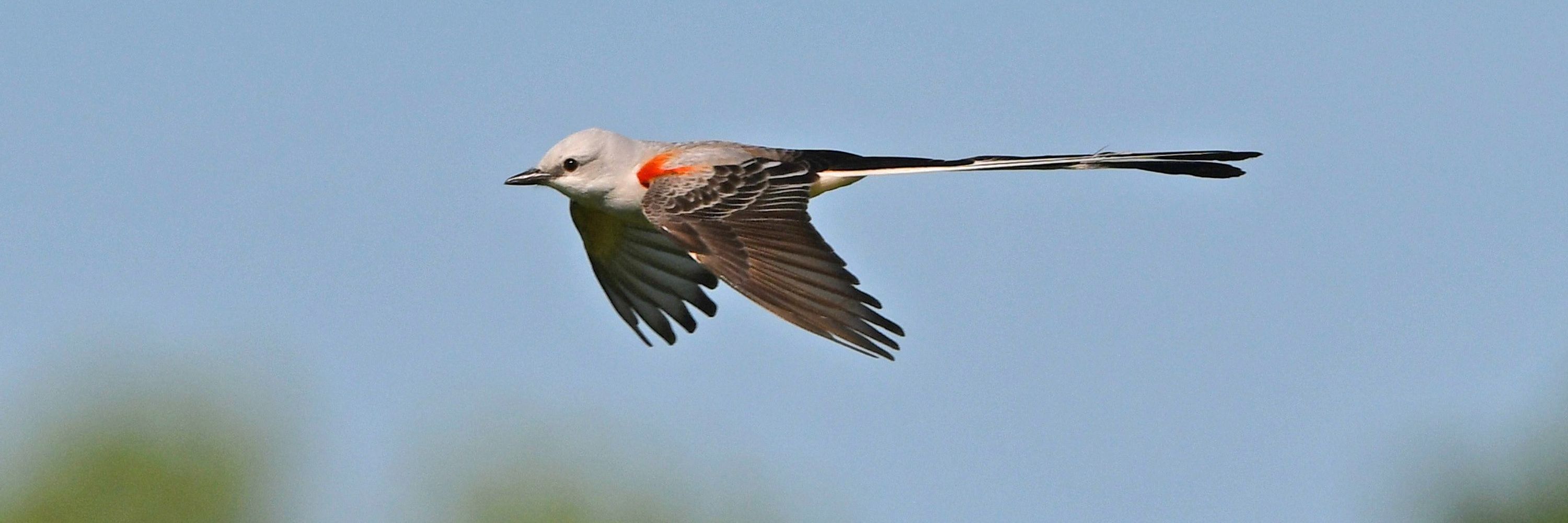
Jeremy Cohen
@drjerbs.bsky.social
Early career research scientist at Yale, macroecology, quantitative climate change ecology, avian ecology, GIS and species distribution models, scale in ecology.... birder, photographer, human dad, cat dad, baseball fan
Pinned
Jeremy Cohen
@drjerbs.bsky.social
· Jun 10
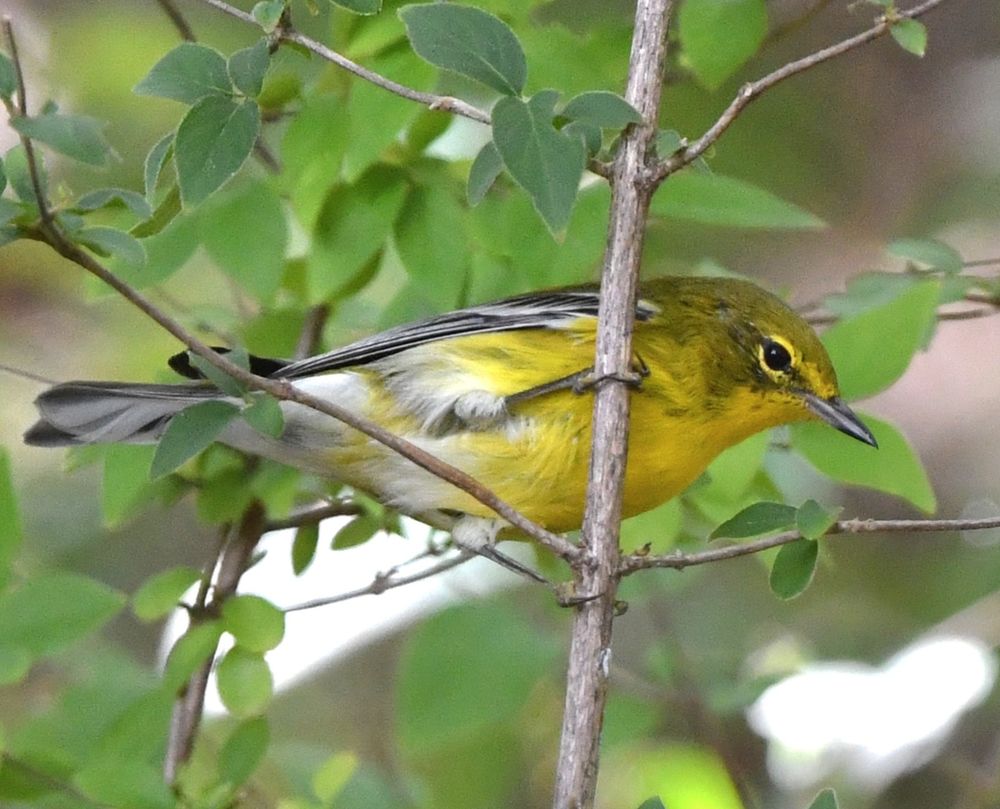
NEW SCIENCE! 🚨🚨🚨🧪🪶🌐
Our paper is now online at @natecoevo.nature.com! “Geographic redistributions are insufficient to mitigate exposure to climate change in North American birds”. We know birds are moving north with climate change, but what are the consequences?
www.nature.com/articles/s41...
Our paper is now online at @natecoevo.nature.com! “Geographic redistributions are insufficient to mitigate exposure to climate change in North American birds”. We know birds are moving north with climate change, but what are the consequences?
www.nature.com/articles/s41...
Leading a organized session at #WBF2026 on climate change and biodiversity! Titled "Linking anthropogenic climate change to shifting biodiversity patterns". If submitting an abstract, you can send it directly to the session (under NEX track)! worldbiodiversityforum.org

November 3, 2025 at 7:19 PM
Leading a organized session at #WBF2026 on climate change and biodiversity! Titled "Linking anthropogenic climate change to shifting biodiversity patterns". If submitting an abstract, you can send it directly to the session (under NEX track)! worldbiodiversityforum.org
🚨Now out in @pnas.org! Our group provides a framework to mathematically link environmental niches from individual to population and species scales. Our approach enables more accurate forecasting of biodiversity change across organismal levels. 🧪 www.pnas.org/doi/10.1073/...

September 2, 2025 at 3:25 PM
🚨Now out in @pnas.org! Our group provides a framework to mathematically link environmental niches from individual to population and species scales. Our approach enables more accurate forecasting of biodiversity change across organismal levels. 🧪 www.pnas.org/doi/10.1073/...
Reposted by Jeremy Cohen
We are turning Earth into a unlivable Hot House Earth
Earth was about 2.65 degrees Fahrenheit (or about 1.47 degrees Celsius) warmer in 2024 than in the late 19th-century (1850-1900) preindustrial average.
The 10 most recent years are the warmest on record.
climate.nasa.gov/vital-signs/...
Earth was about 2.65 degrees Fahrenheit (or about 1.47 degrees Celsius) warmer in 2024 than in the late 19th-century (1850-1900) preindustrial average.
The 10 most recent years are the warmest on record.
climate.nasa.gov/vital-signs/...
August 5, 2025 at 3:10 PM
We are turning Earth into a unlivable Hot House Earth
Earth was about 2.65 degrees Fahrenheit (or about 1.47 degrees Celsius) warmer in 2024 than in the late 19th-century (1850-1900) preindustrial average.
The 10 most recent years are the warmest on record.
climate.nasa.gov/vital-signs/...
Earth was about 2.65 degrees Fahrenheit (or about 1.47 degrees Celsius) warmer in 2024 than in the late 19th-century (1850-1900) preindustrial average.
The 10 most recent years are the warmest on record.
climate.nasa.gov/vital-signs/...
Nature Ecology & Evolution highlights our paper about bird niches keeping pace with climate change in a news & views feature:
www.nature.com/articles/s41...
www.nature.com/articles/s41...
Some birds are left behind in a race to beat the heat - Nature Ecology & Evolution
Twenty years of occurrence data for North American birds suggest that range shifts in some, but not all, bird species have partly mitigated the effects of climate change.
www.nature.com
July 9, 2025 at 6:19 PM
Nature Ecology & Evolution highlights our paper about bird niches keeping pace with climate change in a news & views feature:
www.nature.com/articles/s41...
www.nature.com/articles/s41...
Reposted by Jeremy Cohen
Trump vs. Birds: Proposed Budget Eliminates Critical Research Programs • The Revelator therevelator.org/trump-vs-bir...
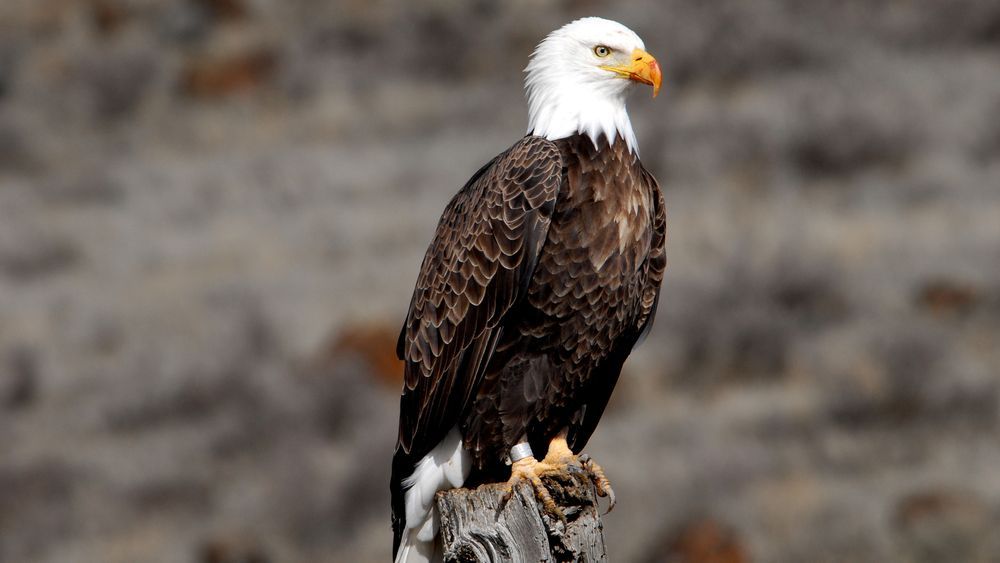
Trump vs. Birds: Proposed Budget Eliminates Critical Research Programs • The Revelator
Experts say there’s “no substitute” for the Bird Banding Laboratory or the Breeding Bird Survey, which help reveal the health and status of avian populations across the country.
therevelator.org
June 16, 2025 at 3:32 PM
Trump vs. Birds: Proposed Budget Eliminates Critical Research Programs • The Revelator therevelator.org/trump-vs-bir...
NEW SCIENCE! 🚨🚨🚨🧪🪶🌐
Our paper is now online at @natecoevo.nature.com! “Geographic redistributions are insufficient to mitigate exposure to climate change in North American birds”. We know birds are moving north with climate change, but what are the consequences?
www.nature.com/articles/s41...
Our paper is now online at @natecoevo.nature.com! “Geographic redistributions are insufficient to mitigate exposure to climate change in North American birds”. We know birds are moving north with climate change, but what are the consequences?
www.nature.com/articles/s41...

June 10, 2025 at 4:35 PM
NEW SCIENCE! 🚨🚨🚨🧪🪶🌐
Our paper is now online at @natecoevo.nature.com! “Geographic redistributions are insufficient to mitigate exposure to climate change in North American birds”. We know birds are moving north with climate change, but what are the consequences?
www.nature.com/articles/s41...
Our paper is now online at @natecoevo.nature.com! “Geographic redistributions are insufficient to mitigate exposure to climate change in North American birds”. We know birds are moving north with climate change, but what are the consequences?
www.nature.com/articles/s41...
Reposted by Jeremy Cohen
A high lipid diet leads to worse infectious disease outcomes. Interesting implications for wildlife food supplementation. Always exciting to have a new manuscript out! Congrats @ashley-love.bsky.social @sauerscientist.bsky.social
@jexpbiol.Bsky.social
journals.biologists.com/jeb/article/...
@jexpbiol.Bsky.social
journals.biologists.com/jeb/article/...
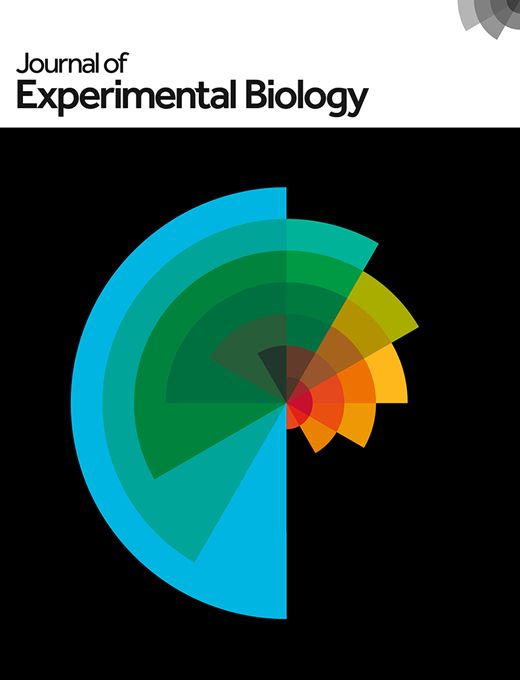
A high-lipid diet leads to greater pathology and lower tolerance during infection
Summary: Canaries fed a diet high in lipids show more severe disease outcomes than those fed a high-protein diet, with important implications for human and wildlife disease transmission.
journals.biologists.com
March 5, 2025 at 4:34 PM
A high lipid diet leads to worse infectious disease outcomes. Interesting implications for wildlife food supplementation. Always exciting to have a new manuscript out! Congrats @ashley-love.bsky.social @sauerscientist.bsky.social
@jexpbiol.Bsky.social
journals.biologists.com/jeb/article/...
@jexpbiol.Bsky.social
journals.biologists.com/jeb/article/...
Reposted by Jeremy Cohen
To understand how climate change affects natural ecosystems we need to know how warming influences species interactions. In our newest paper we show that predator-prey interactions fundamentally change across latitude leading to context dependent effects of warming. 🧪
doi.org/10.1111/oik....
doi.org/10.1111/oik....
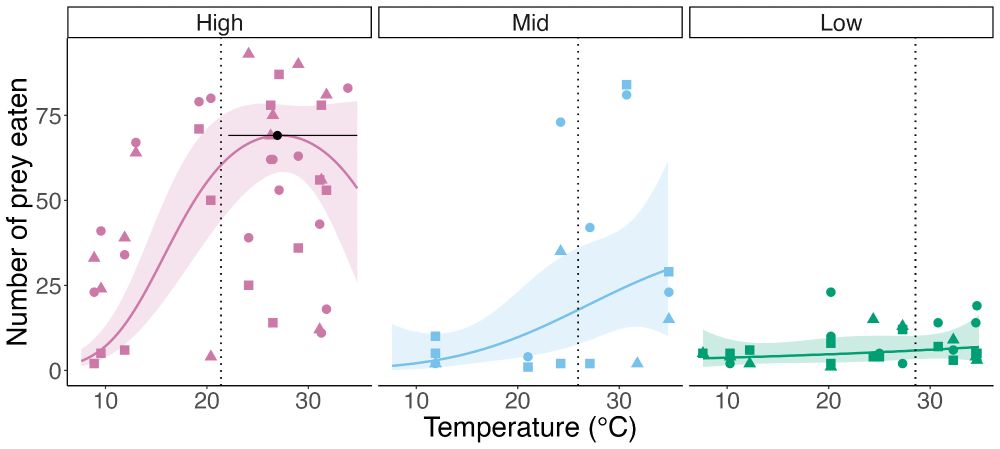
January 8, 2025 at 6:07 PM
To understand how climate change affects natural ecosystems we need to know how warming influences species interactions. In our newest paper we show that predator-prey interactions fundamentally change across latitude leading to context dependent effects of warming. 🧪
doi.org/10.1111/oik....
doi.org/10.1111/oik....
Reposted by Jeremy Cohen
The #climate/water paradox: As temperatures rise, more #water evaporates into the atmosphere & more precipitation occurs. But land areas are getting drier not wetter. Why? Because more water evaporates from soils. The rain that falls is in intense events in fewer regions, leading to worse #floods 👉
December 27, 2024 at 9:50 PM
The #climate/water paradox: As temperatures rise, more #water evaporates into the atmosphere & more precipitation occurs. But land areas are getting drier not wetter. Why? Because more water evaporates from soils. The rain that falls is in intense events in fewer regions, leading to worse #floods 👉
Reposted by Jeremy Cohen
Last month's total #Arctic sea ice volume averaged the 3rd lowest on record for the month of November...
Data using PIOMAS: psc.apl.uw.edu/research/pro... 🌊
Data using PIOMAS: psc.apl.uw.edu/research/pro... 🌊
December 14, 2024 at 7:11 PM
Last month's total #Arctic sea ice volume averaged the 3rd lowest on record for the month of November...
Data using PIOMAS: psc.apl.uw.edu/research/pro... 🌊
Data using PIOMAS: psc.apl.uw.edu/research/pro... 🌊
Reposted by Jeremy Cohen
Reposted by Jeremy Cohen
‼️📝 New paper! 1st undergrad honor thesis from the lab! Hannah Owen looked at thousands of #spottedlanternfly @inaturalist.bsky.social images to study spatio-temporal & phenology patterns of the invasion, and to understand the role of #urban environments in their spread
www.nyu.edu/about/news-p...
www.nyu.edu/about/news-p...
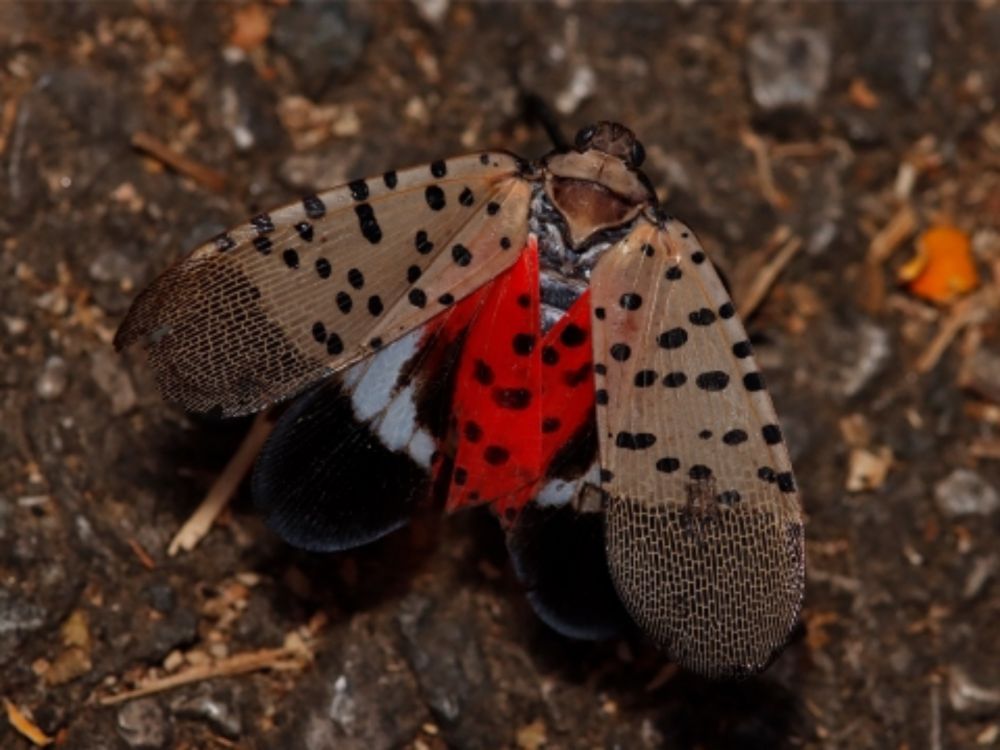
Spotted Lanternflies in the US Are Living Longer—and Cities May be Helping Them Spread
NYU researchers find longer life cycles and urban connection for the invasive insects, which could spell trouble for local ecosystems, but also point to cities as “early-detection zones” for controlli...
www.nyu.edu
December 5, 2024 at 4:48 PM
‼️📝 New paper! 1st undergrad honor thesis from the lab! Hannah Owen looked at thousands of #spottedlanternfly @inaturalist.bsky.social images to study spatio-temporal & phenology patterns of the invasion, and to understand the role of #urban environments in their spread
www.nyu.edu/about/news-p...
www.nyu.edu/about/news-p...
Saw/heard 104 bird species in Florida over Thanksgiving... crossing 100 was a goal I slowly become obsessed with, made tougher with all the best spots being closed due to hurricane. Here's a prairie warbler ebird.org/tripreport/2... 🪶 #birds
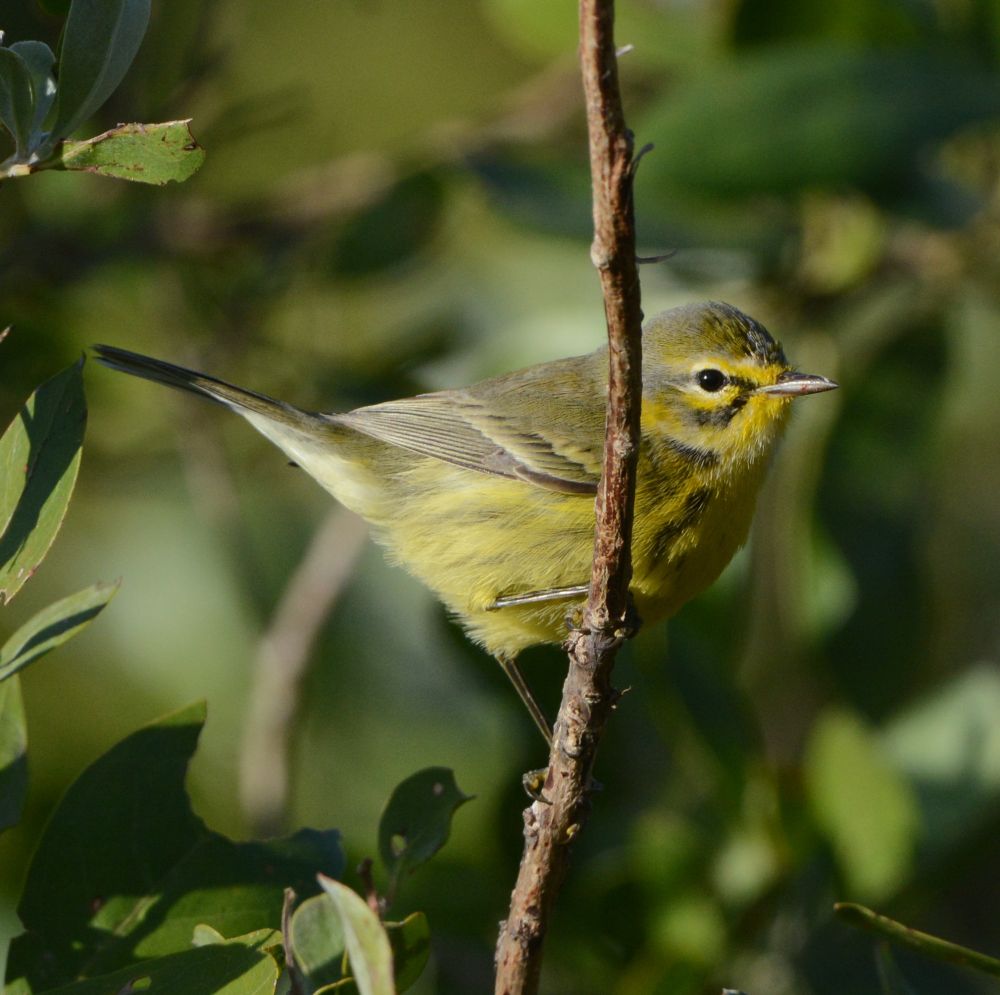
December 4, 2024 at 7:17 PM
Saw/heard 104 bird species in Florida over Thanksgiving... crossing 100 was a goal I slowly become obsessed with, made tougher with all the best spots being closed due to hurricane. Here's a prairie warbler ebird.org/tripreport/2... 🪶 #birds
Reposted by Jeremy Cohen
Wait, do I want cool science to drown out all of the politics?!
Yes. Yes, I do. 🧪
Yes. Yes, I do. 🧪
Thank you so much to whoever put this very comprehensive list of #science Bsky starter packs together. This is just amazing: docs.google.com/document/d/1...
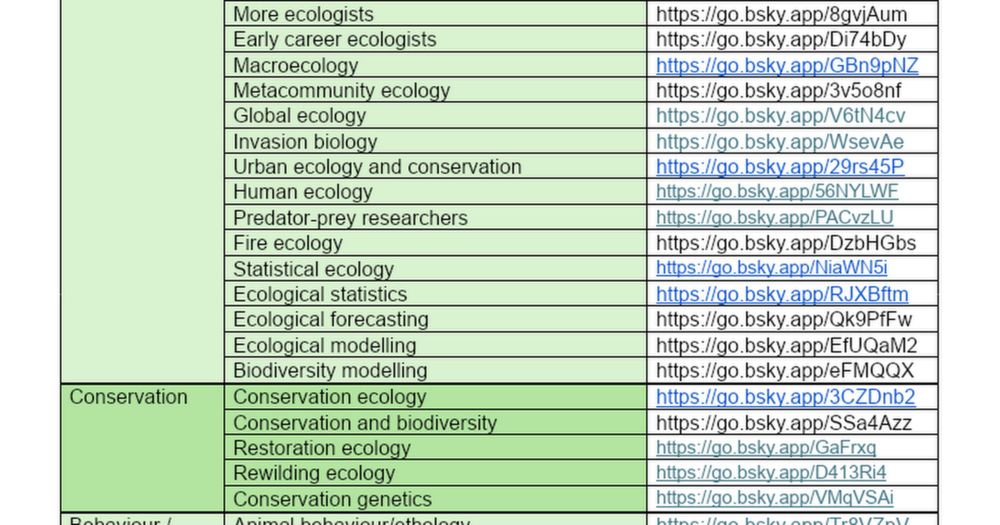
Starter packs
BIOLOGY General Science community https://go.bsky.app/HVYAMEA Research Institutions in Life Sciences https://go.bsky.app/LxXpcvJ LGBTQIA+ in STEM https://go.bsky.app/BFc4wgf LGBTQIA+ in STEM 2 h...
docs.google.com
November 28, 2024 at 12:20 AM
Wait, do I want cool science to drown out all of the politics?!
Yes. Yes, I do. 🧪
Yes. Yes, I do. 🧪
Reposted by Jeremy Cohen
Recently discovered a fun webpage called Probability Playground where you can interactively explore probability distributions.
It’s helpful especially for distributions with parameters that are not immediately intuitive. Very cool!
www.acsu.buffalo.edu/~adamcunn/pr...
It’s helpful especially for distributions with parameters that are not immediately intuitive. Very cool!
www.acsu.buffalo.edu/~adamcunn/pr...
November 24, 2024 at 3:18 PM
Recently discovered a fun webpage called Probability Playground where you can interactively explore probability distributions.
It’s helpful especially for distributions with parameters that are not immediately intuitive. Very cool!
www.acsu.buffalo.edu/~adamcunn/pr...
It’s helpful especially for distributions with parameters that are not immediately intuitive. Very cool!
www.acsu.buffalo.edu/~adamcunn/pr...
🚨 NOW ONLINE- global ecol & biogeog
As global change accelerates, accurate predictions are critical to limit biodiversity loss. With many continental predictions at coarse grain, it's unclear how grain-size biases vary across space/time, giving poor predictions for some regions, seasons, species 🧪
As global change accelerates, accurate predictions are critical to limit biodiversity loss. With many continental predictions at coarse grain, it's unclear how grain-size biases vary across space/time, giving poor predictions for some regions, seasons, species 🧪

Fine‐Grain Predictions Are Key to Accurately Represent Continental‐Scale Biodiversity Patterns
Aim As global change accelerates, accurate predictions of species distributions and biodiversity patterns are critical to limit biodiversity loss. Numerous studies have found that coarse-grain speci...
onlinelibrary.wiley.com
November 22, 2024 at 7:12 PM
🚨 NOW ONLINE- global ecol & biogeog
As global change accelerates, accurate predictions are critical to limit biodiversity loss. With many continental predictions at coarse grain, it's unclear how grain-size biases vary across space/time, giving poor predictions for some regions, seasons, species 🧪
As global change accelerates, accurate predictions are critical to limit biodiversity loss. With many continental predictions at coarse grain, it's unclear how grain-size biases vary across space/time, giving poor predictions for some regions, seasons, species 🧪
Reposted by Jeremy Cohen



November 21, 2024 at 7:14 PM
Literally the best bird
The day I learned what a prothonotary warbler sounds like #birds

November 20, 2024 at 8:12 PM
Literally the best bird
Incredible job by my colleagues at Map of Life! advancing tech in biodiversity monitoring

‘Map of Life’ team wins $2 million prize for innovative rainforest tracking
The Yale-based team, Map of Life Rapid Assessments, will use its prize money to expand its biodiversity work around the world.
news.yale.edu
November 20, 2024 at 6:01 PM
Incredible job by my colleagues at Map of Life! advancing tech in biodiversity monitoring
Reposted by Jeremy Cohen
Temperatures in October 2024:
Red 🟥 - warmer than average
Blue 🟦 - colder than average
Data from NOAAGlobalTemp v6.0.0 using their own 1971-2000 baseline: www.ncei.noaa.gov/products/lan...
Red 🟥 - warmer than average
Blue 🟦 - colder than average
Data from NOAAGlobalTemp v6.0.0 using their own 1971-2000 baseline: www.ncei.noaa.gov/products/lan...
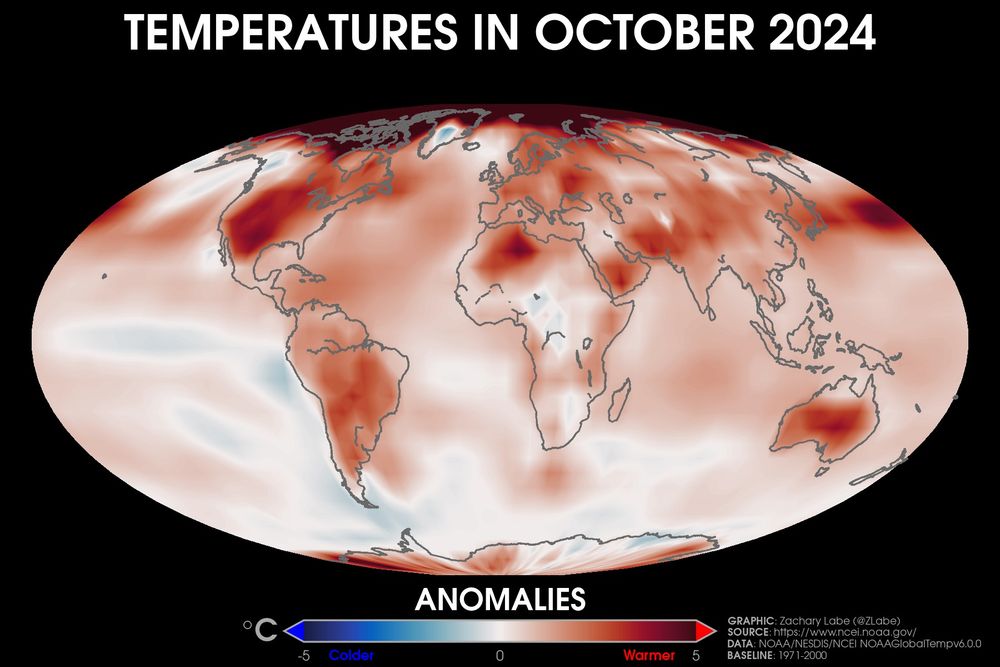
November 20, 2024 at 5:45 PM
Temperatures in October 2024:
Red 🟥 - warmer than average
Blue 🟦 - colder than average
Data from NOAAGlobalTemp v6.0.0 using their own 1971-2000 baseline: www.ncei.noaa.gov/products/lan...
Red 🟥 - warmer than average
Blue 🟦 - colder than average
Data from NOAAGlobalTemp v6.0.0 using their own 1971-2000 baseline: www.ncei.noaa.gov/products/lan...
Reposted by Jeremy Cohen
100s of millions of sparrows and other birds died. In the absence of birds, insects flourished; crops vanished; and as many as 75 million people starved to death. How does that disaster echo in what is happening today, even in the US? Read on: therevelator.org/china-sparro.... #birds

Six Lessons From the World’s Deadliest Environmental Disaster • The Revelator
China’s Great Sparrow Campaign aimed to “conquer nature” but resulted in as many as 75 million human deaths.
therevelator.org
November 19, 2024 at 10:08 PM
100s of millions of sparrows and other birds died. In the absence of birds, insects flourished; crops vanished; and as many as 75 million people starved to death. How does that disaster echo in what is happening today, even in the US? Read on: therevelator.org/china-sparro.... #birds
[Recapping research since I left Xitter: June '24] We explored how dynamic winter min temps influence short-distance migration & survival in white-tailed deer using decades of archival telemetry data 🧪 My first pub as a formal grad mentor- of an awesome MS student at UW-Madison shorturl.at/eUc7B
November 19, 2024 at 5:51 PM
[Recapping research since I left Xitter: June '24] We explored how dynamic winter min temps influence short-distance migration & survival in white-tailed deer using decades of archival telemetry data 🧪 My first pub as a formal grad mentor- of an awesome MS student at UW-Madison shorturl.at/eUc7B
Reposted by Jeremy Cohen
well, here it is lads
after combing through some 1,400 records, it looks like the slender-billed curlew is indeed extinct and the last known photo taken in 1995 was probably at the point it slipped beneath the waves 🦉🧪
www.nhm.ac.uk/discover/new...
after combing through some 1,400 records, it looks like the slender-billed curlew is indeed extinct and the last known photo taken in 1995 was probably at the point it slipped beneath the waves 🦉🧪
www.nhm.ac.uk/discover/new...

The slender-billed curlew is declared extinct
This is the first mainland European bird declared extinct in 500 years.
www.nhm.ac.uk
November 18, 2024 at 10:13 AM
well, here it is lads
after combing through some 1,400 records, it looks like the slender-billed curlew is indeed extinct and the last known photo taken in 1995 was probably at the point it slipped beneath the waves 🦉🧪
www.nhm.ac.uk/discover/new...
after combing through some 1,400 records, it looks like the slender-billed curlew is indeed extinct and the last known photo taken in 1995 was probably at the point it slipped beneath the waves 🦉🧪
www.nhm.ac.uk/discover/new...


